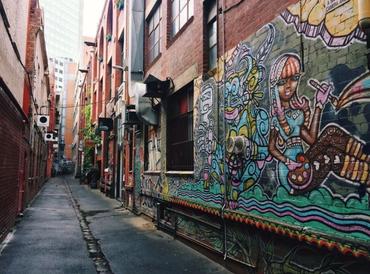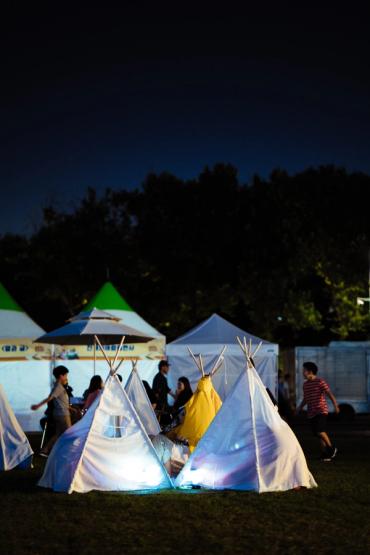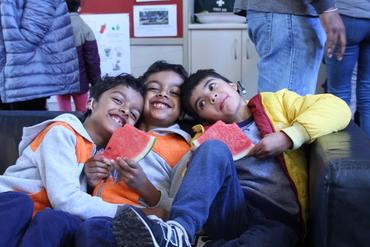My Story, My Career Path- Victor Belousov
Victor is a Youth Support Worker at Deaf Children Australia and has achieved a Bachelors in Information Technology and Systems. In his spare time he loves to mountain bike and travel.
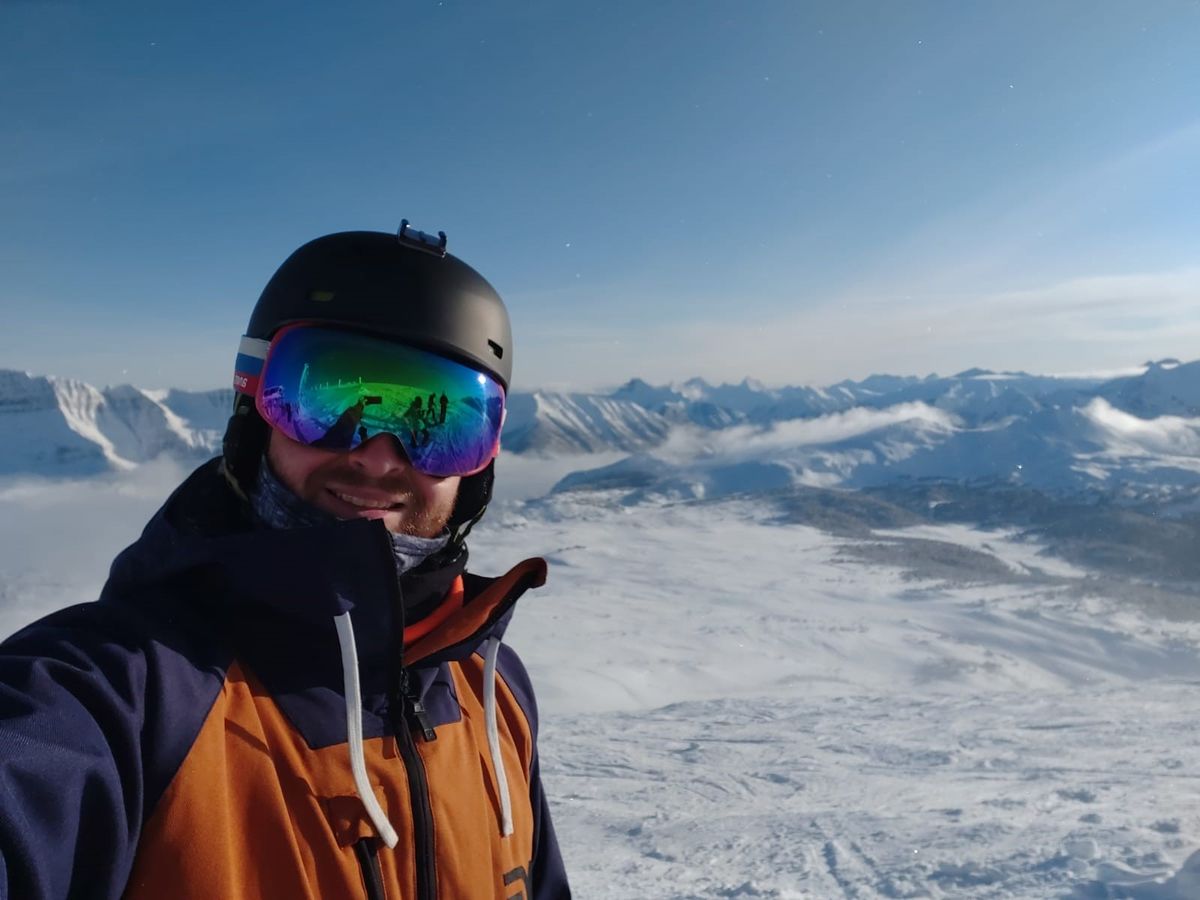
Tell us about your diagnosis as a child?
I was born hearing in Moscow, Russia. I was diagnosed at young age due to virus that spread in the hospital, and I was given medication which affected my hearing. Right now, I am profound hearing loss where I still can hear low, deep sound but when it come to high pitch sound, and I cannot hear that at all.

If and what age were you fitted with a hearing aid or cochlear implant and what was that like?
I was fitted with hearing aid at young age in Russia and Australia. I wore them all the time when I was growing up until I turned 15, I decided to get cochlear implant for my left ear. 10 or 11 years later I decided to get another one for my right ear.
Growing up I did not mind hearing aids because they helped me hear certain environment, I wanted to hear which was great for me until one day I decided to get cochlear implant. It improved my hearing significantly where I can hear more high pitch sounds as I gained about 60% increase of my hearing loss. After that I decided to get another one, but it does not work well for me because it sounds completely different compared to another one that I practiced and worked so hard to get the right hearing I want.
Are you oral and if so, what was your experience like learning spoken language?
Yes, I am oral, but I am not great with it. During my primary and high school, I learnt how to improve my speech and learnt how to lip read, how each word sound and now I sign and speak at same time which I found it comfortable for me.
Do you use Auslan, why did you decide to learn and at what age?
I was taught English sign language when I attended Princess Elizabeth Kindergarten for the Deaf (PEJS), and they used this sign language at that time and that continued into primary school as well. After high school, I went into deaf community in Melbourne and that is where I met more deaf people, they used Auslan often and I learn their signs as I go.
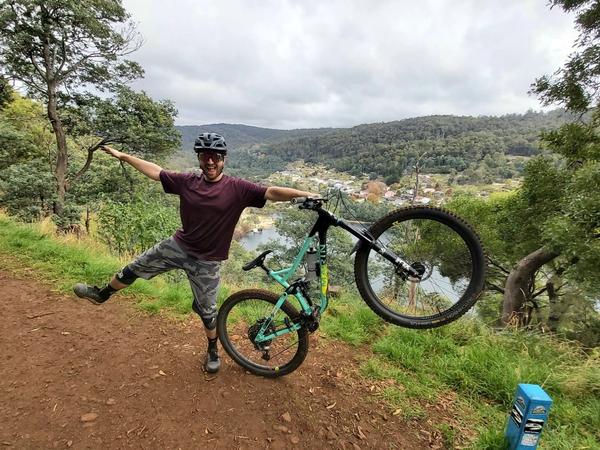
How did you communicate within your family and amongst friends?
When I attended PEJS, my parents learnt sign language and communicated very well with me considering it was quite late for me to learn English language at age of 5/6. I learnt many words that are related to signs and my communication managed to grow and get better with my strong understanding of English and that continued to primary school. After that I attended high school called Yarra Valley Grammar which is more oral based school with great education and that is where my communication method with my family stopped as they want to focus more on oral. I did not like it at first, but I got used to it for whole high school as my parents tried so hard to ensure the success in hearing world.
With my friends, everyone is deaf, and I always use my hands to communicate, and I found it comfortable and easy at same time.
Tell us about going to school - what was that like? What were the worries you had that you remember?
As I mentioned, I went Princess Elizabeth Kindergarten for the Deaf (PEJS) with a lot of deaf children, and I felt like I belong there as everyone was the same with hearing loss. Everyone was signing with each other, had lots of fun activities, excursion to public places such as Zoo or around the corner for some local shops. After that I made transition to Eastwood Primary School, and I had great time as I had teacher of deaf/interpreter supporting us all deaf students in the classroom. Everyone in the school was so accepting and I felt like I had great time there. After that I attended Yarra Valley Grammar which was high school and everything changed for me there because I did not have interpreter, teacher of deaf does not attend every class and I was bullied just because I am “different”. I did not enjoy my time there, but the education and I had same friends that I know from PEJS was great which made my school experience slightly better, and I am grateful of it.
And tell us about going to Uni or TAFE - what was that like?
I attended Monash University straight away after high school to study Bachelor of Information Technology and Systems. It was completely different compared to high school and I struggled first year because I still did not have interpreters at that time which I should have and some lecturers was extremely difficult to understand as they move a lot around the classroom or talk to the board and I cannot understand a word but I managed with a lot of one on one visits with the lecturers and tutors, studied longer than usual and learnt more about it. Few years later and I started to get hang of it and managed to finish my studies and graduated.
What influenced your career choices?
Growing up I did not have any brother or sister, so I got so interested in computer from early age. I spent a lot of time on it and learnt more on how everything works and of course I played some games. I always wanted to learn how to make a website, game or even software to make life easier in the future. That is why I pursued my career into that field.
Do you love what you do?
Now, I am not in IT field anymore, but I still managed to include it as I have strong understanding with technologies, and it was extremely useful during COVID-19 lockdown in 2020. I love what I do by passing on my experiences, wealth, knowledges to next generations of deaf people and support them in every way I can because I can understand what they are going through. Helping people always have been part of my nature and I exceed in this area, and I found it incredibly rewarding.
What are your main challenges?
The main challenges that we face these days is to educate anyone who never met deaf people in the public, and we want them to respect and treat each other equal. The other challenges are access to the information via sources such as movies or tv without subtitles or Auslan interpreters, so I did not understand anything.

And how did you overcome them?
If I work in normal organisation and I would order Deaf awareness training (DAT) to teach them more about deaf culture, Auslan sign languages and few other things. If you feel something not right such as they cannot support you or give you service and you can advocate for yourself to get what you desire by educating them or stand up to them and inform that is not right as you can remind them about the disability ACT, 1992 or simply ignore them and walk away as they lose the customer. It depends on what, who and where the situation is.
What key message would you give parents who are starting out their journey with a deaf/hard of hearing child?
I strongly advise all parents to ensure that their child get best access to both world, deaf and hearing world by being bilingual with Auslan and English because you never know what will happen in the future once the child lost their hearing and rely more on Auslan. There is evidence that deaf children excel on their signing skills, and they understood more words and get some information about real world. I feel confident with great help of NDIS, the parents and child will have more access to everything in the future.

